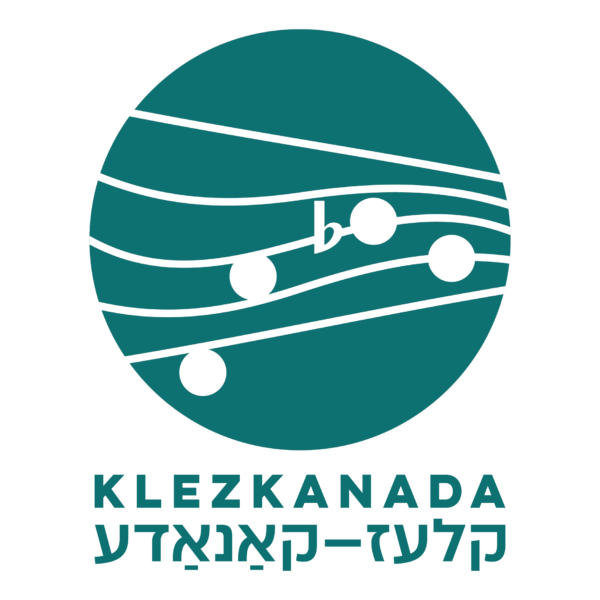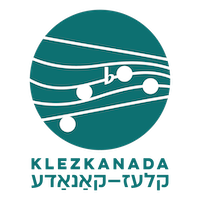Community Guidelines
Building the Culture of KlezKanada Together
We build the culture of KlezKanada together as a community, co-creating an environment where a diversity of identities, viewpoints, practices, and traditions are welcome. KlezKanada strives to cultivate a meaningful experience for everyone who would like to be a part of it. This requires active working together to create an environment that allows everyone to come into community as their full self. We ask that you take the time to go over these community guidelines and come to our programs with a commitment to treating every member of the community with respect.
KlezKanada unequivocally supports open and diverse creative expression and upholding a shared commitment to community care and to doing no harm. All participants must agree to uphold the Code of Conduct when registering for the retreat or buying tickets to a KlezKanada event.
Our Community Guidelines are living documents which we revisit and update each year. We invite you to read, engage with, and give us your feedback so we can continue to grow these ideas together.
Let us use this time to envision and enact the world we wish to see. Our actions large and small, individual and collective, may contribute to systems of oppression. Some of us are also subject to these systems of oppression in different ways. When we gather together at the Summer Retreat and other KlezKanada events, let us actively work in a spirit of togetherness and intentionality against these forces and build a community with an ethos of opening and striving, a place where all are truly welcome. As the old song says, let us work for a tsukunft where libe iz greser un sine klener, a future where love is greater and hatred diminished, and where we will at last bafray un banay undzer alte velt, liberate and renew our old world.
Land Acknowledgment
Since 1996, KlezKanada’s Summer Retreat has taken place near Lantier, Québec, located on the traditional, unceded territory of the Anishinabewaki, Huron-Wendat, Kanien’kehá:ka (Mohawk), and Omàmiwininiwak (Algonquin) people. We gratefully acknowledge these original custodians of the land, thank them for having hosted us, and commit to treating the land with care and respect.
We come together at KlezKanada events through a shared interest in and love for Yiddish culture and art. KlezKanada seeks to explore both the roots and the boundaries of this tradition, so keep an open mind, and be aware that the plurality of experiences and range of knowledge are what make this space rich.
Who comes to KlezKanada? In short, everyone comes, and everyone is welcome! Whether you want to rock out on the accordion, immerse yourself in Yiddishkayt or sing and dance along to your favourite klezmer tunes, KlezKanada is a place for anyone interested in Yiddish culture and Jewish music to come and enjoy themselves. We are proud of the religious and cultural pluralism in our community and we strive to create respectful spaces where everyone, of all levels of observance and secularity, and of all cultural backgrounds, can coexist with authenticity, integrity, and respect.
What is klezmer? You may already know that “klezmer” literally means “musician,” but klezmer has also come to encompass Eastern European Jewish music and its related culture. It’s the music of then and the music of now. For everyone here – whether they grew up with it or have just heard it for the first time – it is a music that brings us together and serves as a glue in our community. What gets called klezmer music today can encompass a wide range of repertoires, including new compositions, each with a rich history and context of its own.
At KlezKanada we encourage each other to be conscious of and celebrate differences in our community–whether in race, ethnicity, cultural and spiritual tradition, heritage, gender, or language.
Please do not disrespect or belittle any group’s cultural or spiritual traditions, especially when they’re not your own.
There are Jewish people of all races, and not all KlezKanada participants are Jewish. Don’t assume that someone is or is not Jewish based on race, and avoid making assumptions or asking unsolicited questions about people’s religious or cultural backgrounds.
It’s important not to push fellow participants to share personal information. Some folks may volunteer personal details while others may not, and both are perfectly fine! Everyone, whether participant or staff, comes here to participate fully; having to implicitly or explicitly justify one’s belonging is a barrier to full participation.
Consent is an important part of our community culture at KlezKanada and safety may look different for each person in the community. Respect others’ implicit and explicit boundaries, including personal space and privacy. Always take “no” for an answer — whether the question concerns playing music, singing, dancing, socializing, internet or phone communication, or sex.
Get consent before photographing, screenshotting, or recording others, and carefully follow all protocols involving recording and related technology. Read our recording policy.
How does gender fit into the picture? KlezKanada is welcoming to people of all genders. We actively aim to facilitate women and non-binary folks coming forward and taking equal space both in formal and informal settings. We are actively supportive of those who are transgender, non-binary, and gender non-conforming (GNC). Please help us build a warm and welcoming space and refrain from making assumptions about people’s gender identities and pronouns. We invite all participants and leaders who feel comfortable doing so to share their pronouns and we remind our community that respecting pronouns is essential. It is also important to realize that it is not always safe or necessary for trans, non-binary, and GNC people to name their gender publicly.
Respectful Communication and Dialogue
The community of KlezKanada is made up of many voices. A culture of respectful dialogue and communication is central to our values and something that we aim to actively cultivate at all times. The need to nurture practices of resilient listening and thoughtful sharing is particularly foregrounded in times of war and violence.
We know that our community holds a wide range of experiences, opinions, ideas, political orientations, and affiliations. We celebrate that KlezKanada’s Summer Retreat is a space where we gather together across differences through our shared love of Yiddish culture.
We have a shared responsibility to create safer spaces and the conditions in which everyone can show up as their full self.
We ask that you:
- Join us with an open mind and open heart.
- Be prepared to meet people who may be having similar or very different experiences to you at any moment.
- Cultivate curiosity and dialogue rather than debate, seeking to understand rather than to convince.
- Bring empathy to your interactions. If you find that you do not agree with someone, lean into empathy, strive to understand each other, and be kind to each other in your differences.
- Centre honest reflection rooted in your own experience. This means not trying to speak on behalf of a whole group or expecting others to speak on behalf of a whole group.
- Hold space for pause, stillness, and boundaries: no one should be pressured to speak or share anything that they are not comfortable sharing.
- Step back from the conversation if you feel uncomfortable, overwhelmed, or unable to engage with a conversation in a respectful manner. Disagreements/asymmetries may arise, but under no circumstances will aggression of any kind be acceptable. Any aggression will be addressed according to our Code of Conduct.
- Practice sitting with complexity. We all have the capacity to hold conflicting experiences, truths, and ideas within ourselves.
During the Summer Retreat, we aim to offer programs and facilitated spaces where we can reflect and share, practice listening, and learn communication tools.
What is a jam? Jams offer a chance for people to play informally together mixing all levels and instruments. They are an essential and fun part of KlezKanada! In order to make sure that everyone gets their share of this valuable space, we have come up with the perfect acronym for it:
Join in: Many people hold back in jams because they lack confidence, or feel that they aren’t good enough. But jamming is for everyone! If you only know how to play one note, then play that one note! Jams are a great space for learning, so we strongly encourage you to dare to play!
All people have an equal right to contribute. If you suspect that you have more confidence or more experience than others, or if you play a louder instrument… use this week to learn about stepping back and supporting others. Also: making space in a jam is not about putting people on the spot to lead or take a solo; it’s also about playing quieter, or slower… Did everyone get that? Let’s do it a bit slower… What tunes do you know? I’d love to hear one! It’s important to remember that taking up space is not merely physical – it’s important to check in with yourself and others throughout all jam sessions (whether in-person or digital) to make sure everyone is able to contribute and take part in the jam session. Always feel welcome to ask questions! This will be helpful for the whole group and increase access for everyone.
Be Mindful of the people around you. While jamming, ask yourself these questions:
What is my intention? Am I sharing? Am I truly listening? Jamming is not about being the star: it is a chance to construct a group experience built on respect and inclusion. Who is leading? Does everyone who wants to start a tune get the chance to do so? We want people of all skill levels to have the chance to practice leading, especially those who are new at leading jams, as this is the key to sustainable community-building. Am I aware of my body? Can I see everyone? Are we in a circle? Is there space for everyone who is playing, or looks like they want to play? Can people find their way into the space, or onto the stage? Am I blocking someone with my body or my instrument?
Community Culture Menu
Something Troubling You? Come Talk to the Ombudsperson
If, for any reason, any questions or concerns arise, you can always talk to our ombudsperson. Their role will be to offer a neutral point of contact where anybody can feel free to speak in private.
Our ombudsperson for the Summer Retreat will be listed in the brochure. They will be holding "office hours" throughout the week, as listed in the brochure and posted on the participant information webpage. If you prefer to meet at another time or place, just ask! You may also reach out to the ombudsperson over email.
Confidential email address: ombudsperson@klezkanada.org. (Please note that this email is only active from August 1-September 30 each year).
Acknowledgments
Our community guidelines were developed from our work on equity and inclusion over recent years, and were developed in collaboration. In particular, they draw upon discussions between, amongst others, Zoe Aqua, Joanna Britton, Maia Brown, Asa Brunet-Jailly, Magdalena Hutter, Jeyn Levison, Sebastian Schulman, Rebecca Turner, Miriam Margles, Evelyn Tauben, Avia Moore, Michael Winograd, Kelly Steinmetz, David Moss, and Uri Schreter. It also draws, with thanks, on texts from Annie Kaufman and the “Let My People Sing” program. The Respectful Communication and Dialogue text draws from guidelines created by the Institute for Jewish Spirituality, Encounter, and Fentster.

